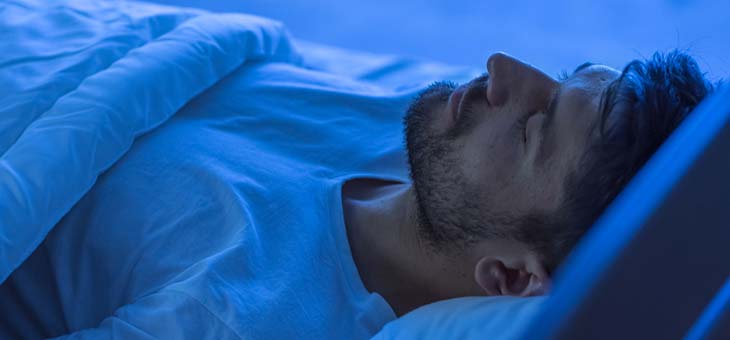You might think that turning off all the lights makes for a better night’s sleep and a healthier life. But doesn’t stop many of us – and that includes older people – from leaving digital devices and hallway lights on overnight.
If you’re in the ‘guilty’ category, maybe you need some clear scientific numbers to really hit home the message that LAN – light at night – can have a significant negative impact on your health.
According to the Chicago Healthy Aging Study Cohort, published as part of a new study, 40.7 per cent of older people (aged from 63 to 84) who were exposed to light during normal sleep time fell into the ‘obese’ weight category, compared to just 26.7 per cent of those who recorded having little or no light exposure during that period.
Read: This much sleep increases your risk of dying by 24 per cent
What’s more, the study showed that it’s not just your weight that’s linked to sleeping with too much exposure to light. While only 9.8 per cent of those who slept ‘in the dark’ had diabetes, the figure was 17.8 per cent for those who were exposed to light.
And the same group showed an increase in hypertension if exposed to LAN. The figure of 59.2 per cent for non-LAN participants rose to 73 per cent for those exposed to LAN during regular sleep hours.
As is the case with statistics in general, these figures do not necessarily suggest that too much LAN causes obesity, diabetes or hypertension, but merely indicates an association between them. It may well be that those who are exposed to LAN are more likely to have other habits that contribute to these higher risks.
Read: New wearable device can help you get a better night’s sleep
However, there is evidence that light exposure during sleep can be disruptive via a number of possible mechanisms, including the following:
- Light is the main synchroniser of the body’s circadian rhythm or clock. Light during sleep may disrupt this rhythm and thus any clock-related physiological processes.
- The pineal gland produces and secretes melatonin, the “hormone of darkness,” during dark periods. Light may reduce melatonin’s metabolic and circulatory function with its antioxidant, anti-inflammatory and vasodilatory properties. Lower melatonin levels correlate with an increased risk of diabetes in women and an increased risk of hypertension in young women.
- Light may trigger the autonomic nervous system’s sympathetic arm. During healthy sleep, the system responsible for fight or flight responses relaxes, slowing the body’s heart rate and respiration in a parasympathetic state.
The study found that the likelihood of developing high blood pressure (hypertension) was increased by 74 per cent, obesity by 82 per cent, and diabetes by 100 per cent.
Read: Study pinpoints the ideal amount of sleep as you age
For the study’s lead author, Minjee Kim, of the Department of Neurology at the Northwestern University Feinberg School of Medicine in Chicago, the fact that older people were exposing themselves to LAN came as a shock. “We were frankly surprised to find out that more than half of the older adults were sleeping with some light at night,” Cr Kim said.
She also stressed that it didn’t take a huge amount of LAN to have an effect. “It appears that even a tiny amount of light has a noticeable effect on our body’s response,” she said.
Of course, for some older people some level of light might be necessary, say for a trip to the bathroom. The recommendation for such cases is to have a light that’s as dim as is practicable, ideally located at or near floor level.
The effects of light at night on our health are real, and almost certainly negative. So now that you’ve seen the light, turn off the light.
If you enjoy our content, don’t keep it to yourself. Share our free eNews with your friends and encourage them to sign up.

